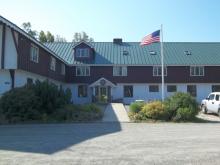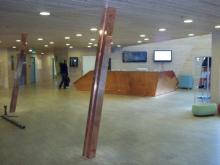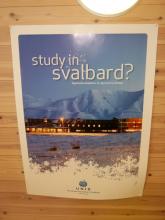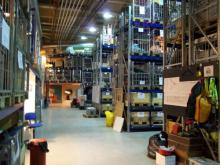What Are They Doing?
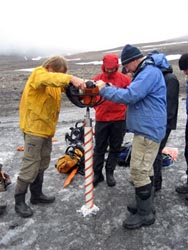 Taking an ice core of a glacier on Svalbard
Taking an ice core of a glacier on Svalbard
The research team of undergraduate geoscience students that participated in the Research Experiences for Undergraduates (REU) Program traveled to Svalbard to conduct independent research projects. The research focused on how climate influences the modern glacial, river, and lake systems in order to better interpret the sediment record of past climate change.
The team investigated how high latitude glaciers, melt-water streams, and sedimentation in lakes and fjords respond to changing climate conditions. The Svalbard region has been marked by the retreat of glaciers, reductions in sea ice, and measurable warming during the past 12,000 years, and more specifically during the last 90 years. Svalbard's high latitude location, its location at the end of the Gulf Stream, combined with its relatively easy access, makes it an ideal location for this study. Svalbard has an arctic climate and is home to many large glaciers, including alpine glaciers in the mountains, and tidewater glaciers that end in long narrow bodies of seawater called fjords. The region is ideal for the study of past climate because the Arctic is highly sensitive to changes in climate and several different types of measurements on and around glaciers can be conducted there.
Where Are They?
 Snow covered mountains on Svalbard
Snow covered mountains on Svalbard
The team flew to Longyearbyen, Spitsbergen, the largest settlement in the Svalbard Archipelago. Svalbard is situated in the Norwegian-Greenland Sea, north of Iceland, approximately mid-way between Norway and the North Pole. From Longyearbyen, the team then traveled to their base camp at Isfjord Radio at Kapp Linne on western Spitsbergen, the largest island in the Svalbard archipelago. The team traveled on foot and by boat to work on and around the glaciers and lakes in the Linne Valley.
Latest Journals

Dr. Steve Roof is an Associate Professor of Earth and Environmental Science at Hampshire College. Professor Roof's teaching and research focus on environmental issues such as climate change, pollution, and land conservation. He consciously integrates the scientific, political, and social aspects of environmental problems in his classes and projects. He teaches and supervises projects in geology, climate change, resource conservation, land use planning, geographic information systems, environmental chemistry, and the evolution of scientific thought. He and his students travel frequently to Death Valley and the Southwest for climate change field research. He also coordinates the Svalbard REU program, taking undergraduate students to the High Arctic. To learn more about Dr. Roof, please visit his faculty biography page [http://www.hampshire.edu/faculty/sroof.htm]

Dr. Mike Retelle is a Professor at Bates College in Lewiston, Maine. Dr. Retelle teaches courses that focus on Earth surface environments and records of environmental change. Currently Dr. Retelle is involved in several research projects in high latitude areas of the North Atlantic region. He has worked in the Canadian Arctic since 1981 focusing on glacial and sea level history and records of climate change preserved in annually layered sediments in lakes. Dr. Retelle has been working in Svalbard since 2005 and has previously mentored numerous undergraduate students in the field through the National Science Foundation’s REU program (Research Experiences for Undergraduates) as well as several past PolarTREC teachers.

Dr. Al Werner is a Professor of Geology at Mt. Holyoke College. His areas of research are in geology and climate change. As a kid he was told "not to play in the mud," but now he makes a living doing just that! Werner's fieldwork has taken him across the circumpolar world. He and his students conduct their research in remote locations—from Alaska to the Canadian Arctic to Spitsbergen, an island in the Norwegian-Greenland Sea—bringing recovered sediment cores from lakes back to the laboratory to learn more about past environmental change. To learn more about Dr. Werner, please visit his faculty biography page [http://www.mtholyoke.edu/acad/facultyprofiles/alan_werner.html]

